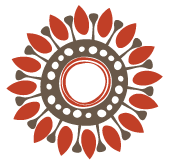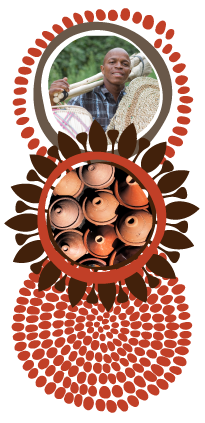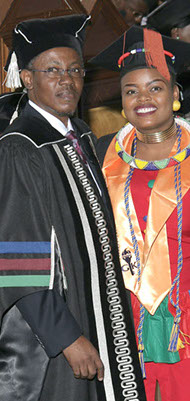
NWU produces first
Indigenous
Knowledge Systems
graduates in

HOVER ON IMAGE TO READ MORE
The NWU’s campus in Mahikeng has produced Africa’s first graduates of the bachelor's in indigenous knowledge systems (BIKS) programme. These 12 pioneers were part of the autumn graduation ceremony.
The significance of this graduation was marked by the presence of esteemed guests from various organisations with an interest in indigenous knowledge systems.
They included the national Department of Science and Technology (DST), the North West Province’s Department of Culture, Arts and Traditional Affairs, the Council for Scientific and Industrial Research, SANBio/NEPAD, the House of Traditional Leaders, the North West Premier’s Office, the National Research Foundation, indigenous knowledge holders and colleagues from other universities.
Establishing a multidisciplinary programme
According to Dr George Sedupane, a lecturer at the Indigenous Knowledge Systems (IKS) Centre on the campus, the BIKS programme was established after extensive discussions and planning sessions between the NWU and key IKS stakeholders. Among them were the universities of Limpopo and Venda, the National Indigenous Knowledge Systems Office of the DST and the South African Qualifications Authority.
Owing to the holistic nature of IKS, the BIKS curriculum was designed as a multidisciplinary programme offering both core and elective modules in indigenous agriculture, health, arts and culture, and science and technology.
This four-year NQF level 8 qualification was launched in 2013 with the first cohort of 20 students drawn from across South Africa.
A force to be reckoned with
“The rationale behind the BIKS programme was the realisation that local African knowledge is a strong driving force not only in economic growth, but also in pursuing excellence in the globalised knowledge economy,” says Prof Simeon Materechera, head of the NWU’s IKS Centre.
The role of indigenous knowledge in sustainable development has been acknowledged by the world at large, he says, and is consistent with the national IKS policy (2004) and the IKS Bill (2016).
“The BIKS programme is seen as a perfect antidote to the recent narratives and discourses on decolonising education, not only at higher education institutions, but also in school curricula,” Simeon says.
The BIKS degree programme aims to blend IKS and Eurocentric knowledge systems to facilitate a cultural cross-over. It seeks to brand the African holistic problem-solving approaches and their underlying principles as a way of life and to assert African traditional value systems. Other goals are to promote the economic value of IKS in local communities, to use IKS as a resource for developing balanced, viable livelihoods and to incorporate IKS into the formal educational system.
Performing beyond expectation
“Taking into account the challenges associated with the introduction of a new academic programme at an institution of higher learning, the BIKS programme has achieved its objectives and has exceeded our expectations,” Simeon says.
There are currently 38 BIKS students enrolled and 60% of the original cohort of students has completed their degrees. Eight of the 12 graduates are currently enrolled for a master's degree in indigenous knowledge systems (MIKS), he says.. “The NWU gratefully acknowledges the financial assistance in the form of student bursaries from the departments of Science and Technology and Arts and Culture.”
The IKS Centre currently has nine PhD and 18 master’s students doing research in areas such as indigenous cultural astronomy, ethno-veterinary practice, reproductive health, metallurgy, ethno-mathematics, indigenous agriculture, indigenous arts and culture, indigenous life skills education, indigenous renewable energies and environment and disaster management.

